[iPhone settings] How to Reduce Your Time on Instagram in 2024?
![[iPhone settings] How to Reduce Your Time on Instagram in 2024?](https://cdn-blog.clarymind.com/how-to-reduce-instagram-usage-in-2024/how-to-reduce-instagram-usage-in-2024-image.jpg)
Table Of Content
- 1. Take control of your social media time and set your goals. Check your progress each week
- 2. Turn off unnecessary phone notifications
- 3. Use the Screen Time app to build a system that keeps you from mindless scrolling
- 4. Set up "Focus Mode" and "Downtime" on your iPhone
- 5. Make a simple rule for yourself to help keep your focus strong
Do you use Instagram? How much time do you spend scrolling each day? Have you ever looked up and realized the whole evening slipped away while you were scrolling?
If it’s 2 hours a day, that adds up to 2.5 days a month, and a full month in a year.
If you keep doing this from age 8 to 80, you’ll spend 6 years of your life just scrolling—without eating or sleeping. And that doesn’t even include time spent on Facebook, X, or Threads.
It might be time to set up a new system on your phone for a small social media detox, to help you find focus again.
Clarymind is a Self-Care App. It has a Focus feature to help you cut down on social media and improve your concentration (the free version lets you lock one social media app). It also comes with a self-care toolkit that offers breathing exercises, meditation, and affirmations. Download Clarymind
1. Take control of your social media time and set your goals. Check your progress each week
On your iPhone, you can see how much time you've spent and check your usage across different categories and apps like social, games, entertainment, and productivity.
Go to: Settings > Screen Time > See All Activity.
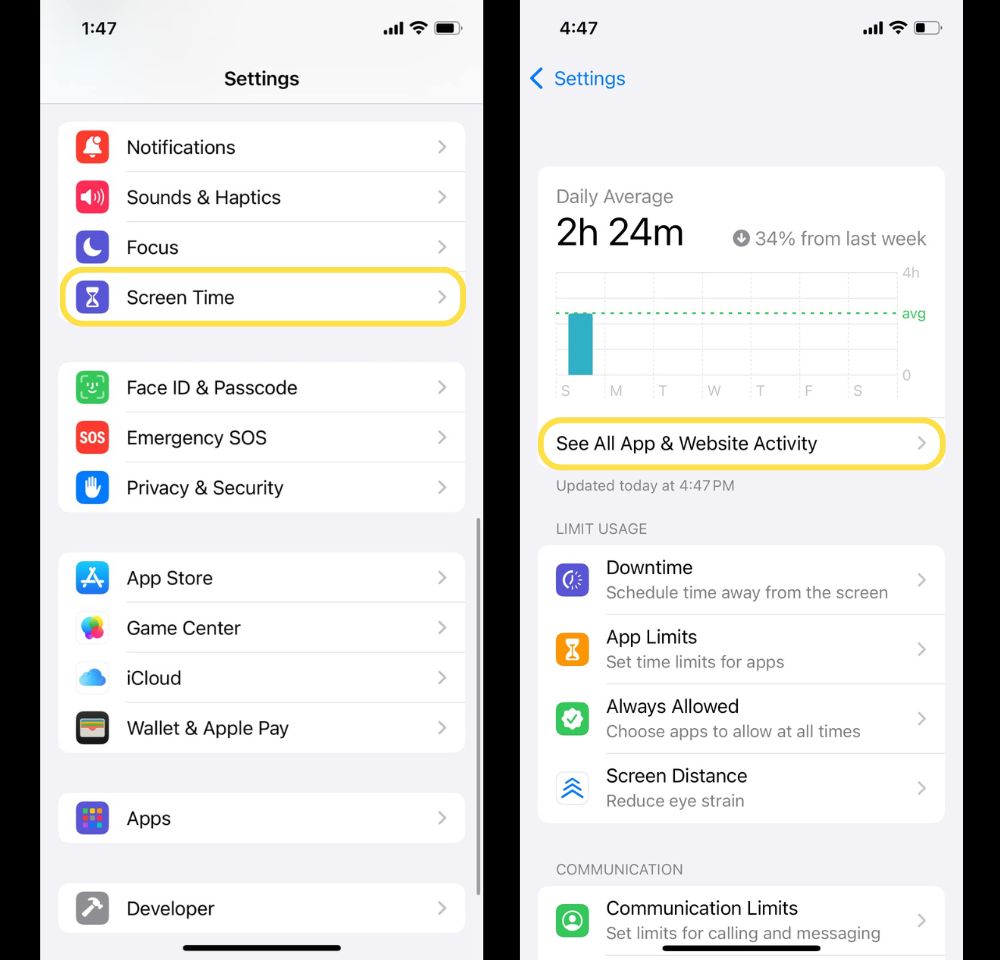
Look at your weekly dashboard to find your average daily time on social apps.
A good starting point is to take last week's social app usage and cut it by 30%. Each week, try reducing it by another 10%.
If you need social apps for work, you can subtract that time. The dashboard also shows how much time you spend on individual apps.
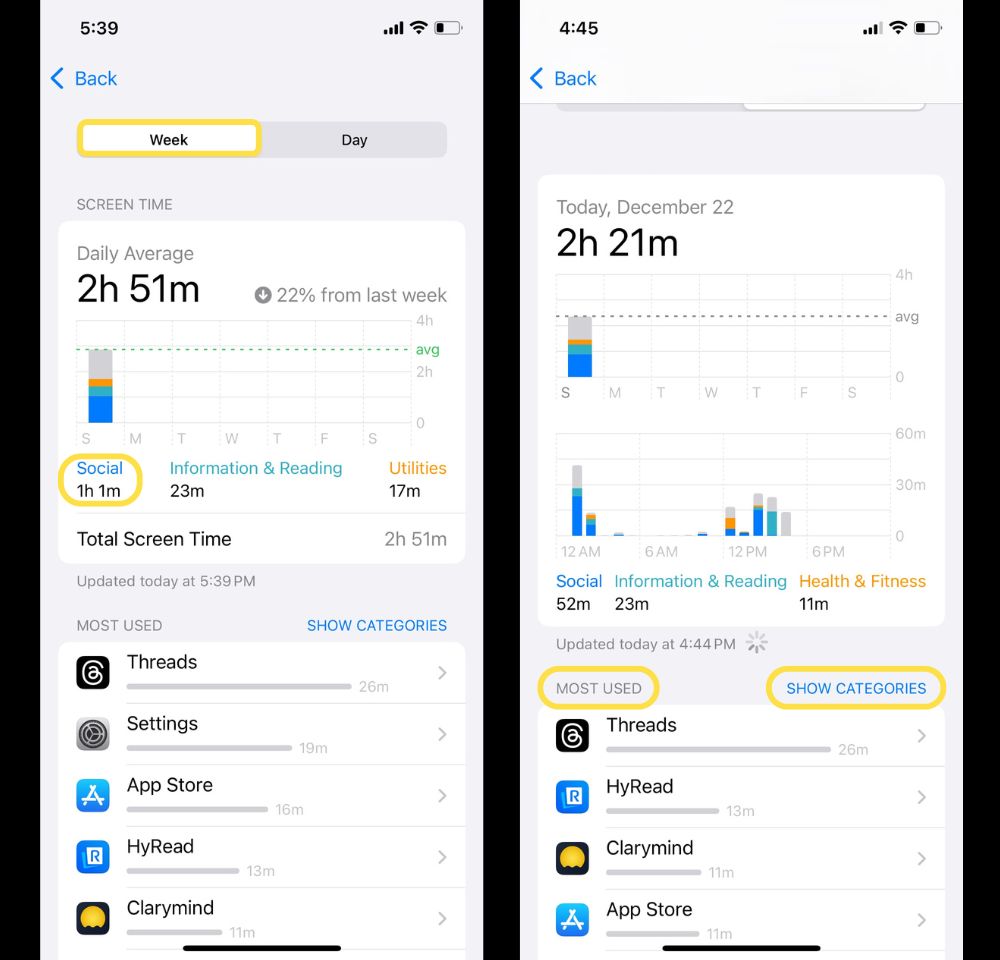
Pay attention to your "pickups"—how often you reach for your phone each day. This number can reveal how many times per hour you're checking your phone.
Take a moment to ask yourself: Do you reach for your phone when you're anxious or bored? What’s the first app you open?
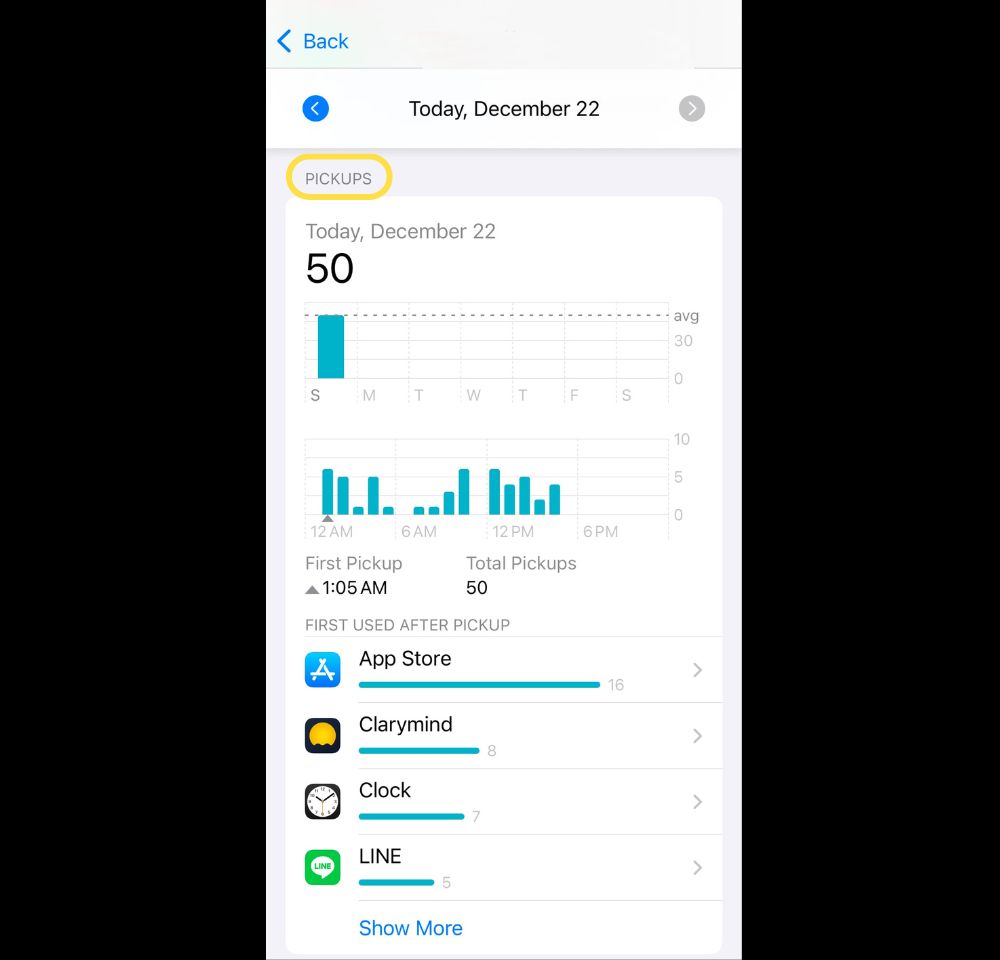
2. Turn off unnecessary phone notifications
Silence the noise and keep your focus by turning off unnecessary notifications.
Check which apps send you the most notifications by going to Settings, then Screen Time, and selecting See All Activity.
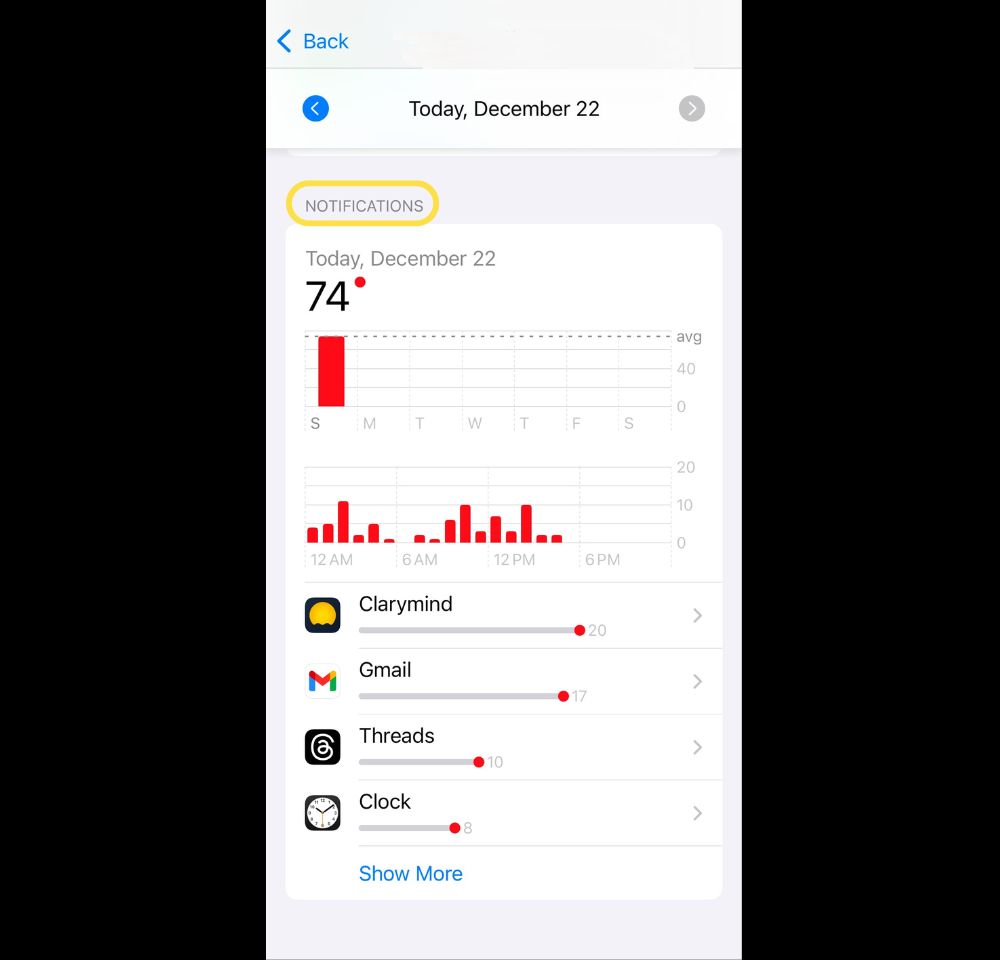
If you don't want to sort through them all at once, handle new notifications as they come. Ask yourself, "Is this useful or just noise?" If it's noise, delete or block it right away.
Don’t overlook how each notification affects your focus. Over time, these interruptions can hurt your productivity.
Also, remember to keep Clarymind's notifications on. These notifications are for unlocking your app. If you turn them off, you won't be able to unlock your app.
Don’t worry, Clarymind won't send you any marketing notifications.
3. Use the Screen Time app to build a system that keeps you from mindless scrolling
If you’ve read Atomic Habits, you know the power of systems. Don’t rely just on self-discipline, even if you consider yourself highly disciplined.
Every choice you make can drain your energy and reduce your willpower, a concept called ego depletion. Since willpower is limited, it helps to set up systems that make reaching your goals easier.
Clarymind can lock your social apps to stop you from mindlessly scrolling when you have free time or feel anxious.
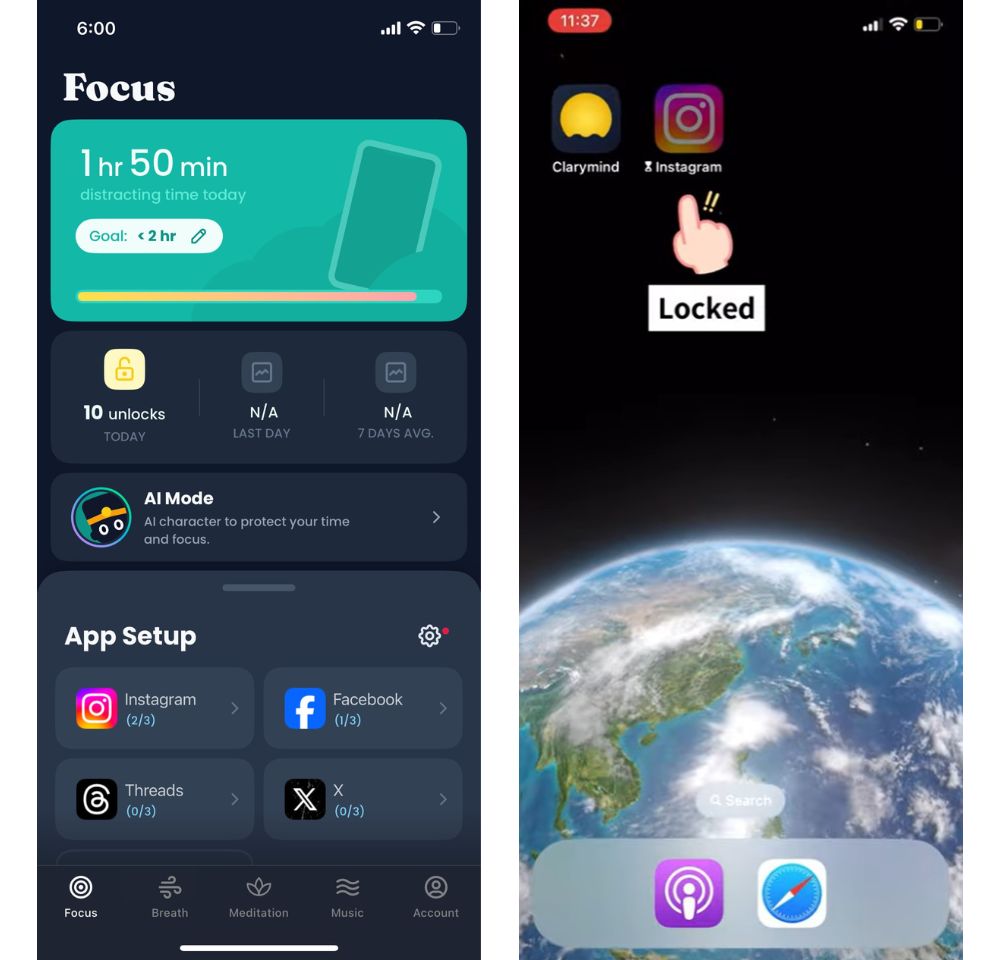
Here’s how it works:
- Pick an app and set daily time limits.
- A block screen shows up every time you open the app.
- To unlock it, tap the notification and do a breathing exercise, or skip it if you haven't hit your daily limit yet.
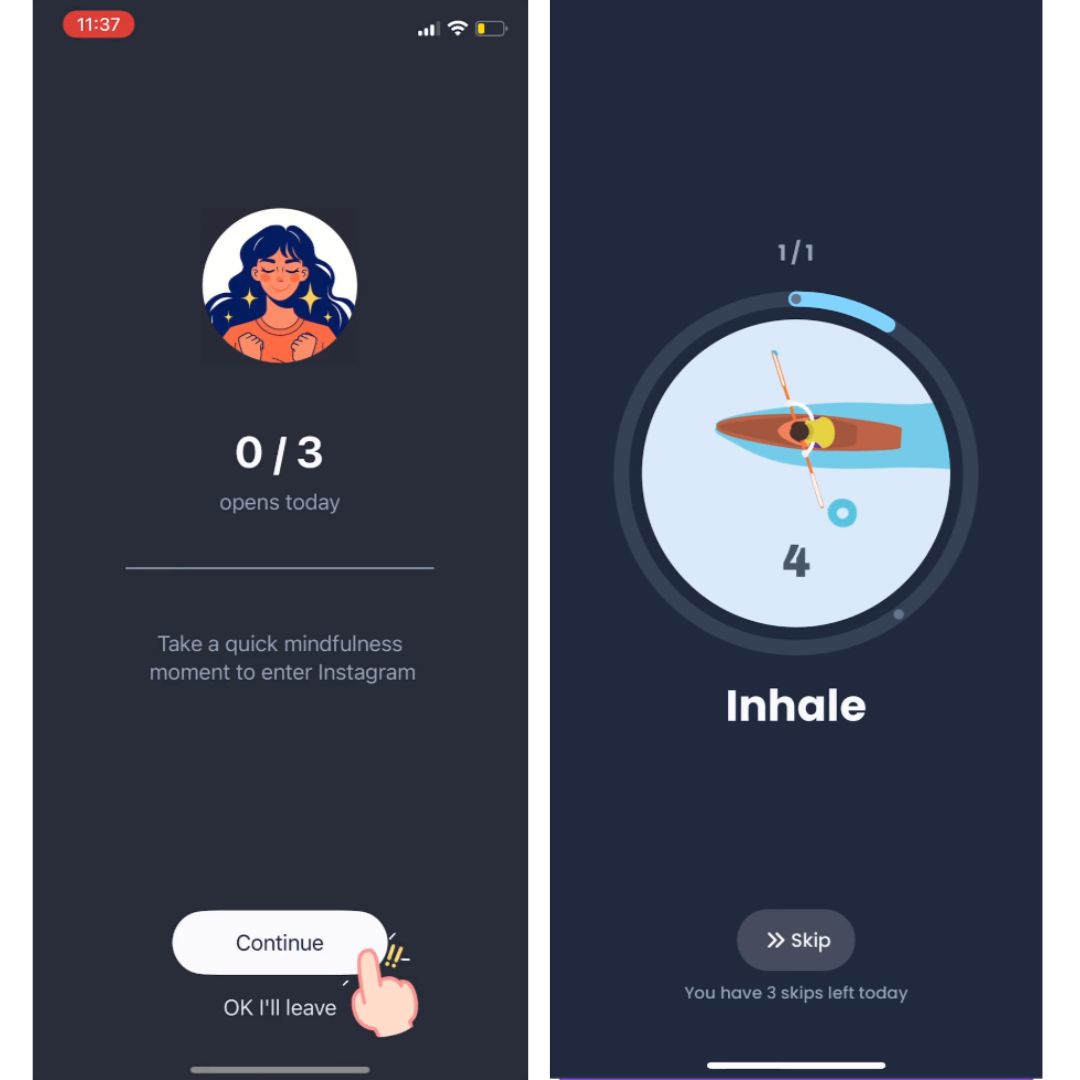
4. Set up "Focus Mode" and "Downtime" on your iPhone
- Use Focus Mode to choose who can contact you, which apps can send notifications, and how your lock and home screens appear in different situations.
Go to Settings and select Focus Mode.
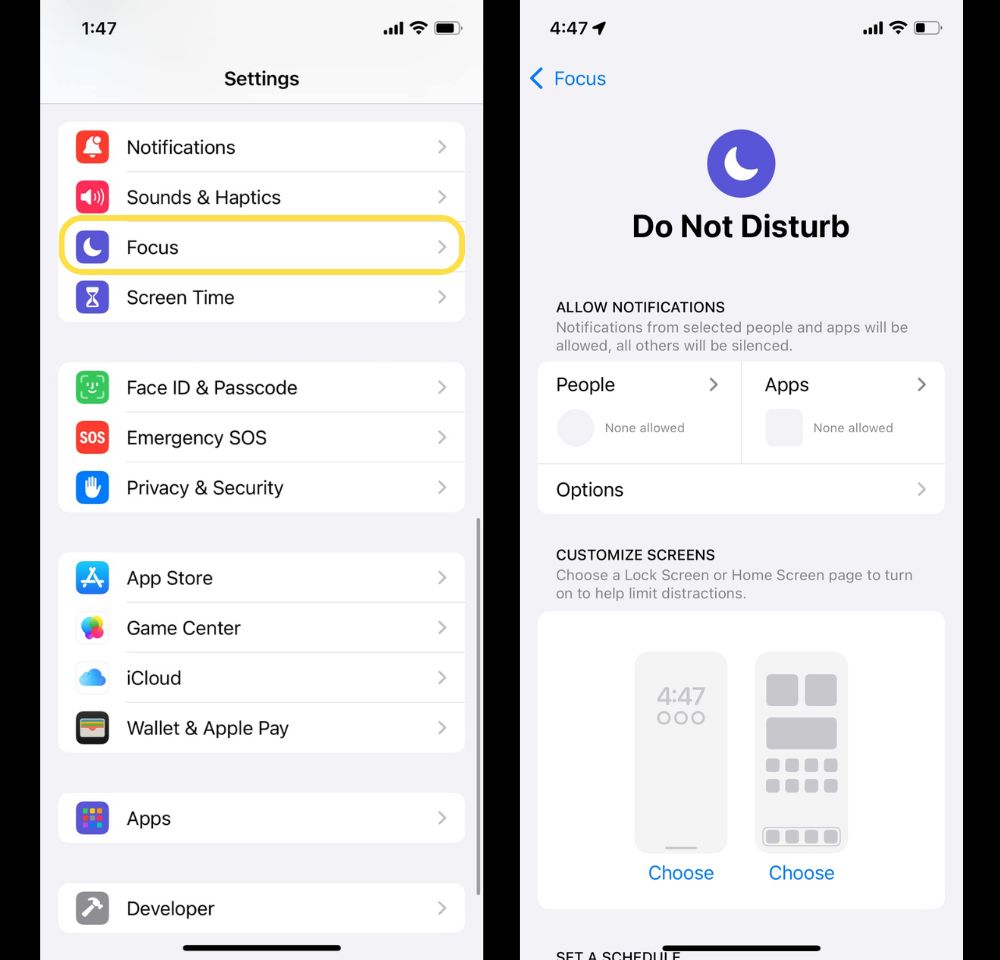
- Use Downtime to turn off apps and block notifications during certain times. Only the contacts and apps you allow can reach you.
Go to Settings, then Screen Time, and select Downtime.
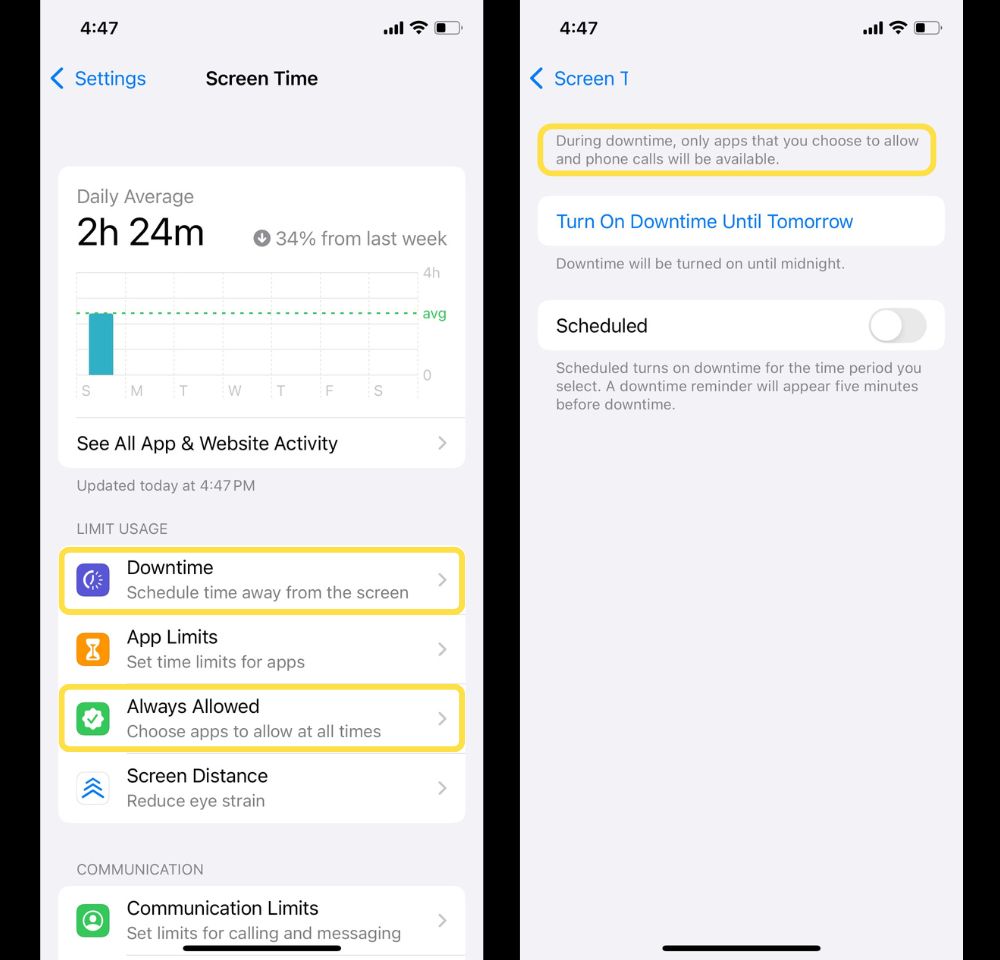
- App Limits let you set daily limits for each app. When you reach the limit, a lock screen appears.
The difference between App Limits and the Screen Time app is that with App Limits, the app only locks after you reach your daily limit. Until then, you can open the app freely. Once you hit the limit, there’s a one-click unlock option that lets you keep using it.
It’s best not to use both App Limits and the Screen Time app at the same time. The iPhone's app locking features depend on its built-in timer. When multiple apps request timing from the iPhone at once, it can lead to timing errors.
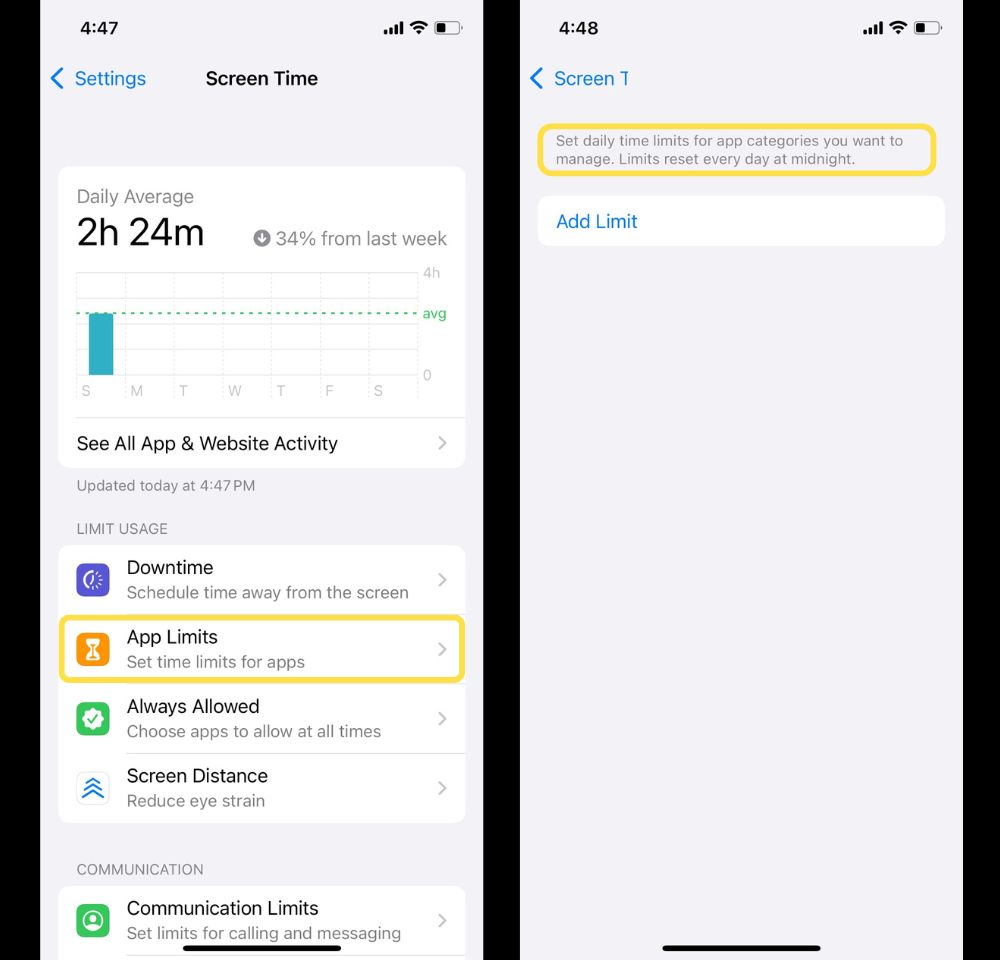
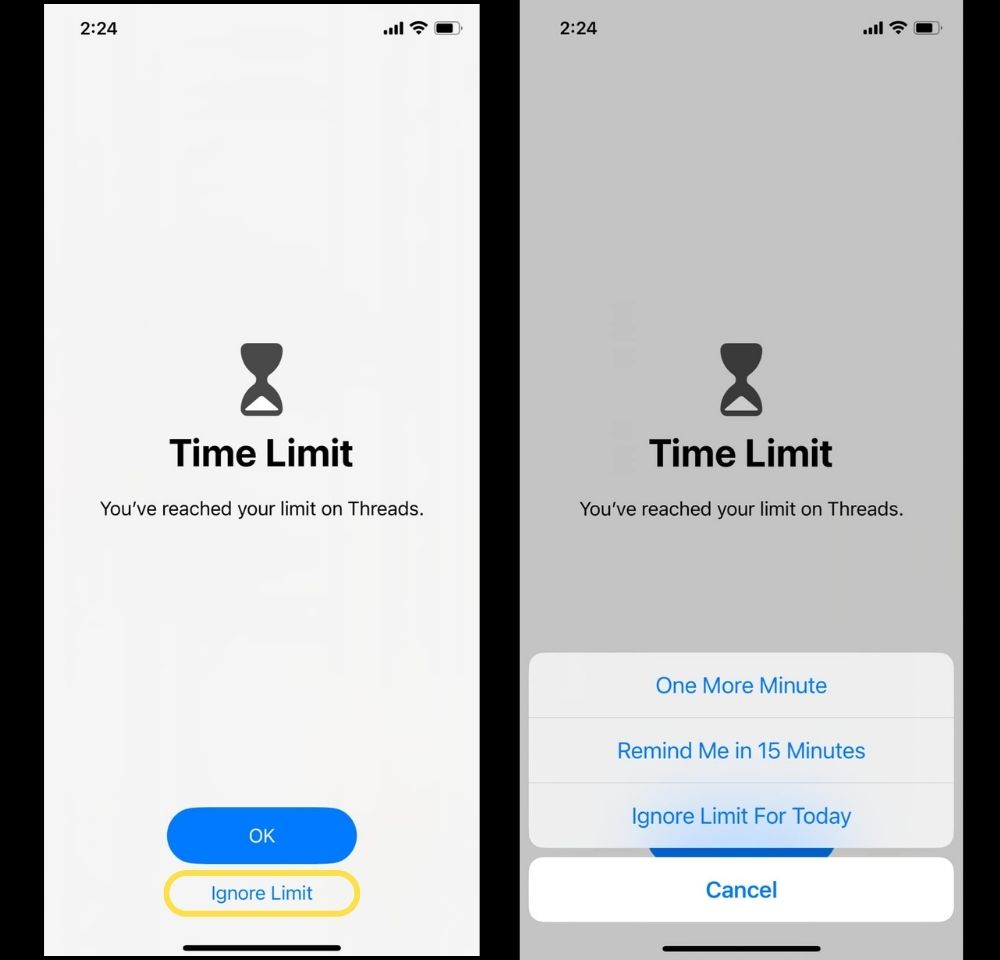
5. Make a simple rule for yourself to help keep your focus strong
The tips above share tools and settings, but here’s a more advanced idea: create simple rules to protect your focus time. This helps you avoid distractions and find your flow.
For example, you might decide, “No social media before noon” or “No social media after work.” This gives you flexibility while still allowing for distraction-free focus time.
Finally, don’t worry about being perfect. The key is to never miss two days in a row.
If you slip up and use more social media than planned today, make sure tomorrow stays on track.
For more tips on productivity and well-being, join the Clarymind Community on Discord or download Clarymind to help reduce your social media time.